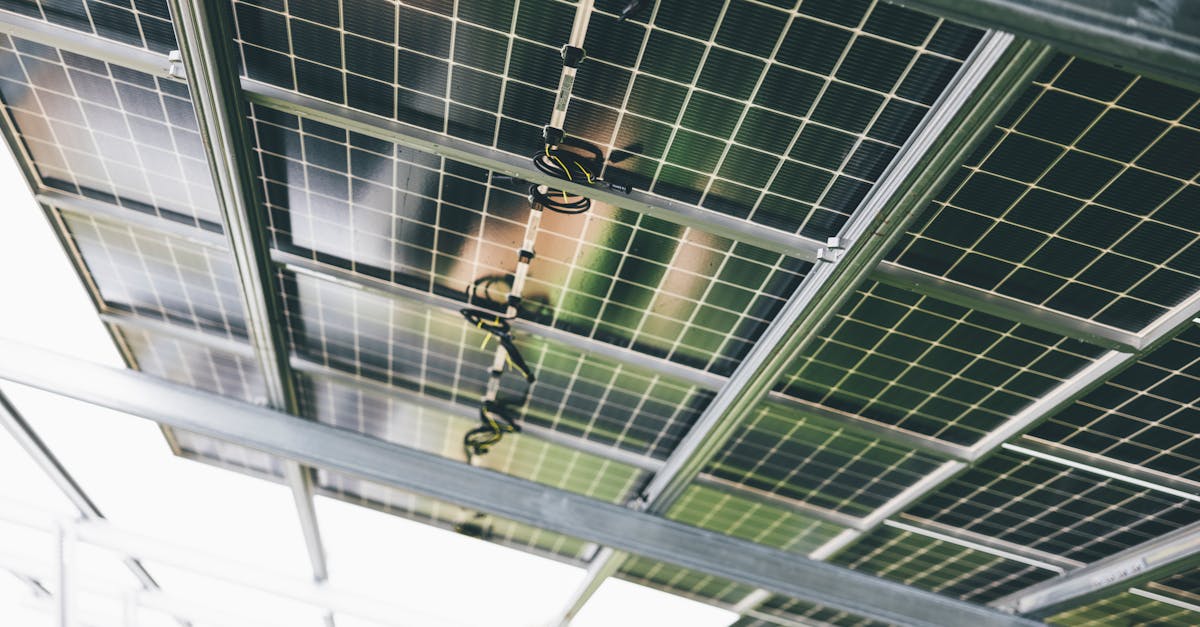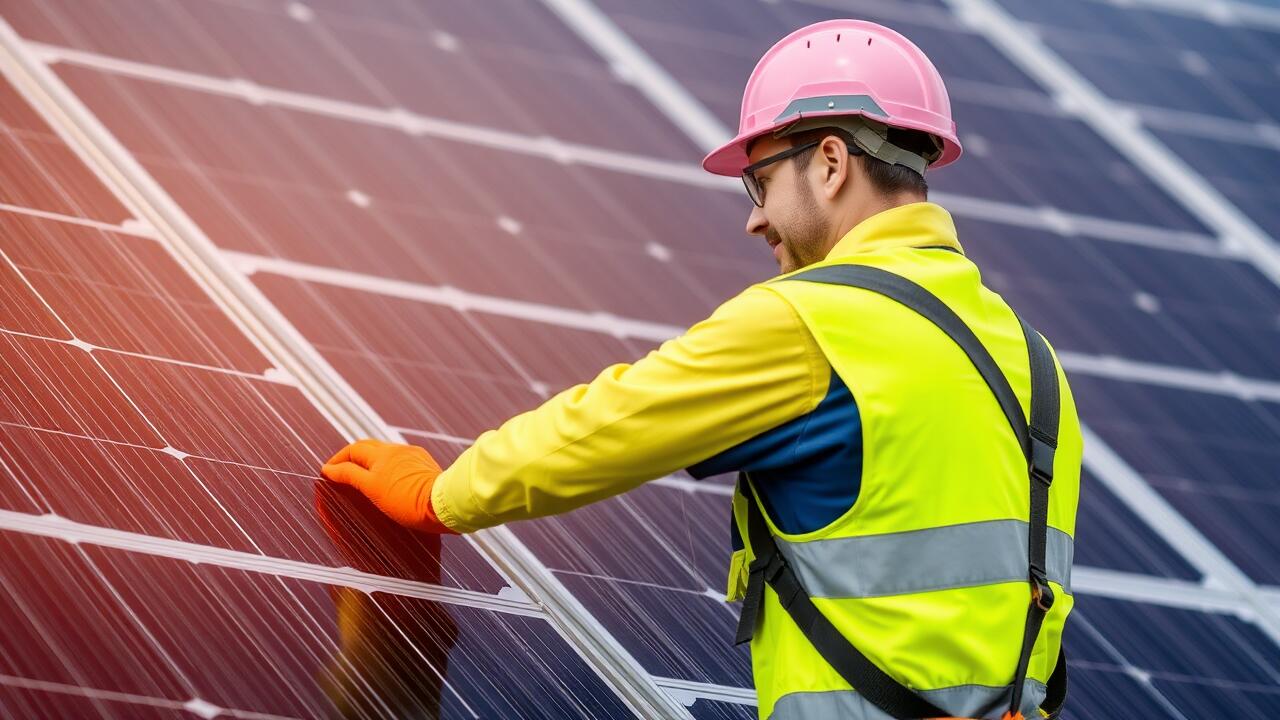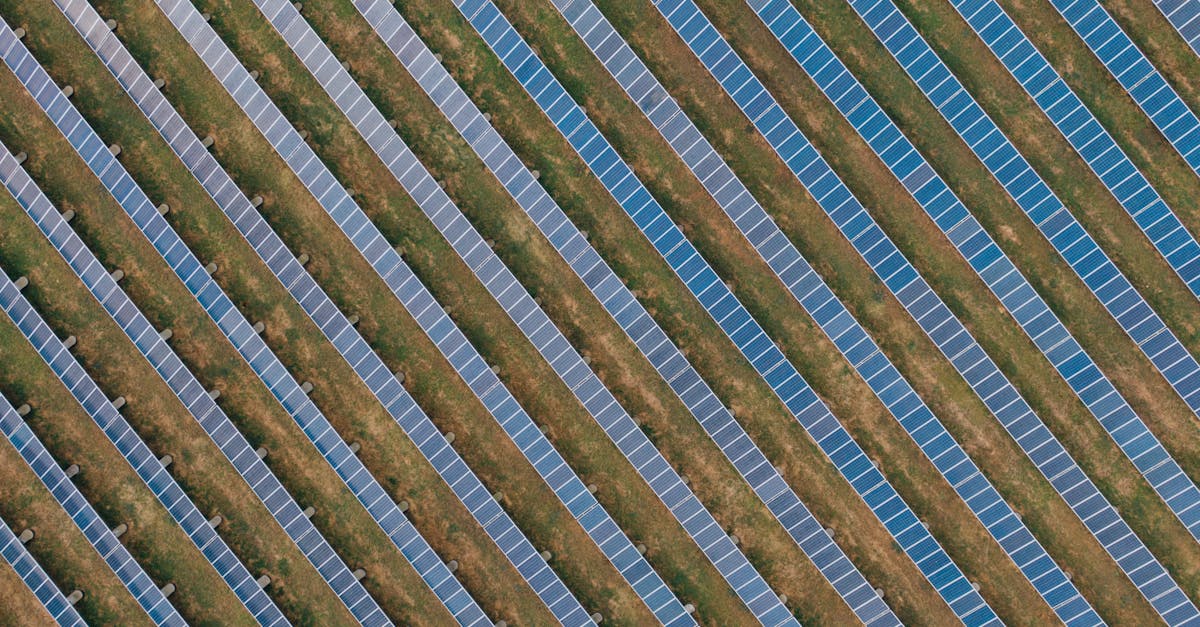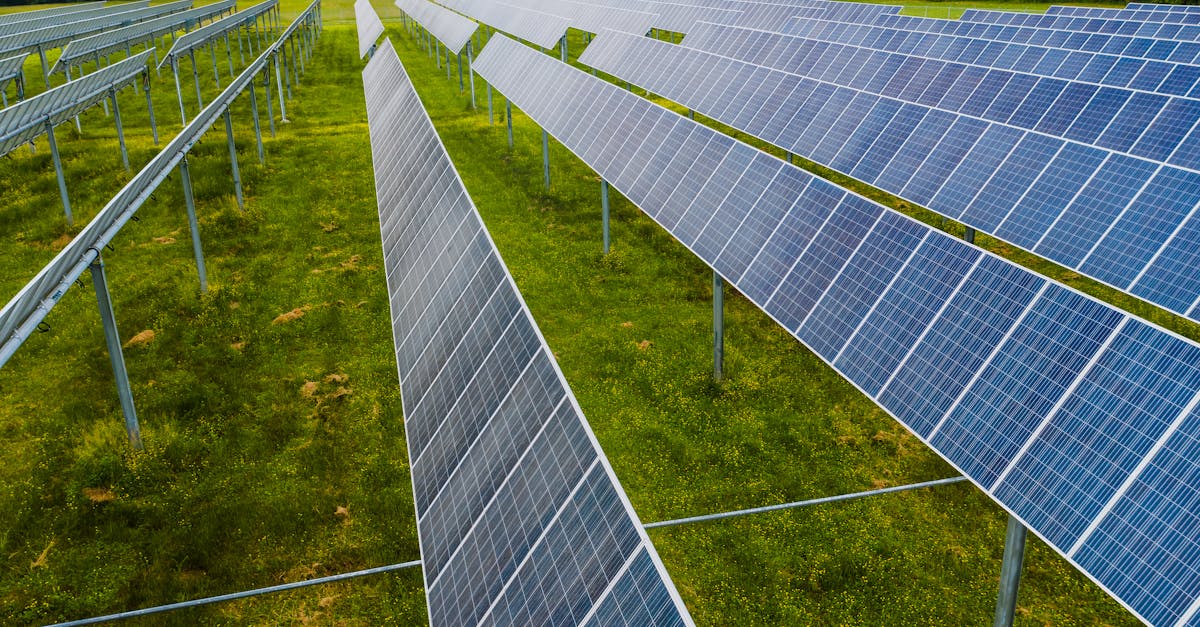
Integrating Smart Technology
Integrating smart technology into solar panel installations enhances efficiency and performance. Devices such as smart inverters and energy management systems allow for real-time monitoring of energy production and consumption. These technologies facilitate data collection, enabling users to make informed decisions regarding energy use and system adjustments. Additionally, connectivity through mobile applications provides insights that help optimise solar panel system performance from anywhere.
Advanced algorithms play a crucial role in solar panel system optimisation. They analyse data on irradiance, temperature, and energy demand, making adjustments based on current conditions. This level of integration ensures that the solar energy generated is utilised effectively, minimising waste. By harnessing the potential of smart technology, homeowners and businesses can significantly improve the return on investment associated with solar energy systems.
Monitoring and Control Systems
Monitoring and control systems are essential for effective Solar Panel System Optimization. These systems provide real-time data on energy production and consumption, allowing users to assess the performance of their solar panels. By tracking factors such as sunlight exposure and weather conditions, these systems can identify trends and suggest adjustments to maximise efficiency. Integrating smart technology further enhances this capability, enabling automatic adjustments in response to changing environmental conditions.
The implementation of advanced monitoring systems also facilitates preventive maintenance. Users can receive alerts regarding potential issues, ensuring that any decline in performance is addressed promptly. This proactive approach not only preserves the longevity of the solar panels but also ensures that the system continues to operate at peak efficiency. Enhanced visibility into operational performance contributes to a more robust strategy for Solar Panel System Optimization.
Maximising Energy Storage
Maximising energy storage is crucial for enhancing the efficiency of a solar panel system. The integration of robust battery systems allows for the retention of excess energy generated during peak sunlight hours. This stored energy can then be utilised during periods of low solar production, ensuring a consistent power supply. By properly sizing the battery system to accommodate the household’s energy demands, users can significantly improve their energy independence.
Selecting the right battery technology is equally important in the context of solar panel system optimization. Lithium-ion batteries remain a popular choice due to their high energy density and longer lifespan. However, other alternatives, such as lead-acid or flow batteries, may offer benefits in certain situations, such as lower upfront costs or better performance in extreme temperatures. Evaluating the specific needs and conditions of your setup will help inform a more effective energy storage solution, complementing the overall solar system's performance.
Selecting Suitable Battery Systems
Selecting the right battery system is crucial for enhancing the efficiency of your solar panel setup. Various options are available, from lithium-ion to lead-acid batteries, each with distinct advantages and limitations. Lithium-ion batteries tend to have a higher energy density, allowing for more energy storage in a smaller space. Additionally, they usually come with longer lifespans and greater cycle efficiency, making them a common choice for those prioritising Solar Panel System Optimization.
When considering battery systems, it's essential to also reflect on your energy consumption patterns and expected solar output. An adequately matched battery system can store excess energy generated during sunny periods for use during times of low sunlight. Beyond energy capacity, monitoring aspects such as charge cycles and depth of discharge can provide insights into the longevity and performance of the battery. These factors collectively contribute to effective solar panel system optimisation, ensuring a reliable and efficient energy supply.
Assessing Local Regulations
Navigating the landscape of local regulations is an essential component of Solar Panel System Optimization. Each region has specific guidelines governing the installation and operation of solar panels. These may include zoning laws, building codes, and safety standards. Understanding these regulations can greatly influence the design and functionality of solar panel installations, ensuring compliance while also maximising efficiency.
In addition to zoning and building codes, there may be incentives or permits available that can aid in the adoption of solar technologies. Local government initiatives often provide financial assistance, either through rebates or tax credits, which enhances the overall feasibility of solar projects. Familiarity with both the requirements and the potential benefits allows homeowners and businesses to make informed decisions regarding their solar panel investments, ultimately fostering a more streamlined approach to Solar Panel System Optimization.
Understanding Permits and Incentives
Navigating local regulations is crucial for anyone seeking to optimise their solar panel system. Permits often vary by region and can dictate the installation process, impacting both timeframes and overall costs. Understanding local guidelines not only streamlines installation but also ensures compliance with safety standards. Engaging with local authorities early in the planning stage can simplify the approval process, enhancing the solar panel system optimisation experience.
Incentives play a significant role in making solar energy more accessible and financially viable. Many governments offer tax credits, rebates, and grants to homeowners and businesses that invest in renewable energy solutions. These financial incentives can substantially reduce the upfront costs associated with solar panel installation. By researching available programmes, one can effectively leverage these opportunities to maximise the benefits of solar panel system optimisation.
FAQS
What are some smart technologies that can help optimise solar panels?
Smart technologies such as monitoring systems, grid integration, and automated control systems can help optimise solar panel performance by providing real-time data and enabling efficient energy management.
How can I monitor the performance of my solar panels?
You can monitor the performance of your solar panels through dedicated monitoring apps or software that track energy production, efficiency, and potential issues. Many solar systems come with built-in monitoring capabilities.
What factors should I consider when selecting a battery system for energy storage?
When selecting a battery system, consider factors such as capacity, discharge rate, cycle life, warranty, and compatibility with your solar panel system. It's also important to evaluate the specific energy needs of your household or business.
Why is it important to understand local regulations regarding solar panel installation?
Understanding local regulations is crucial to ensure compliance with building codes, zoning laws, and safety standards. It can also help you take advantage of available incentives and avoid potential fines.
What permits might I need to install solar panels?
The permits required for solar panel installation vary by location, but typically include building permits, electrical permits, and possibly zoning permits. It’s advisable to check with your local authority to determine specific requirements.


